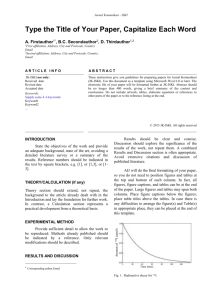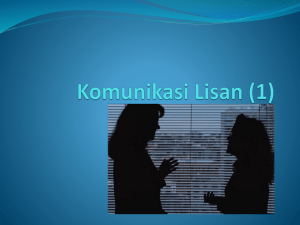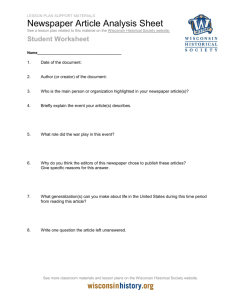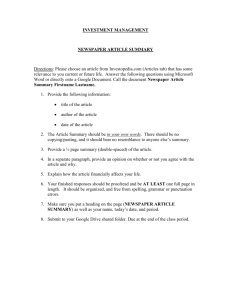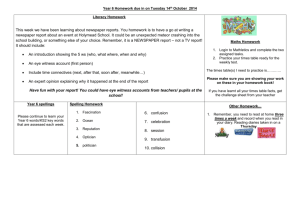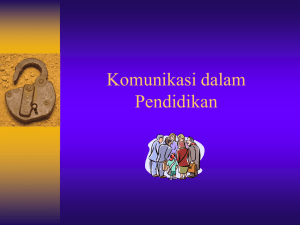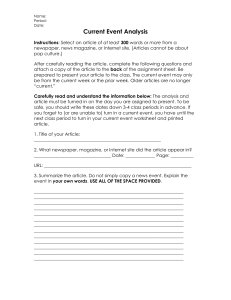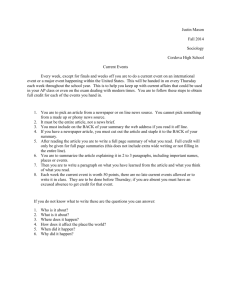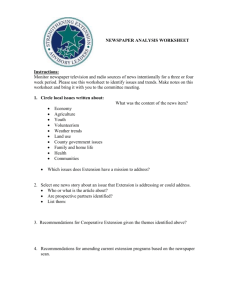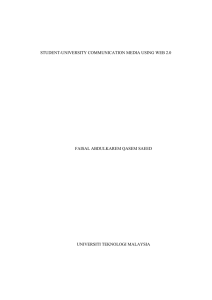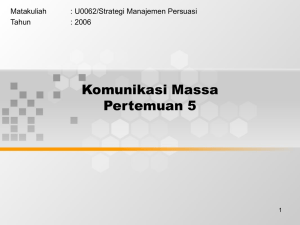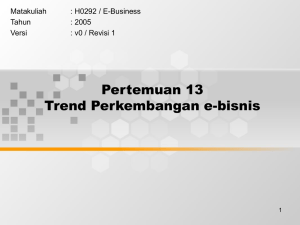Perkembangan Media Komunikasi
advertisement
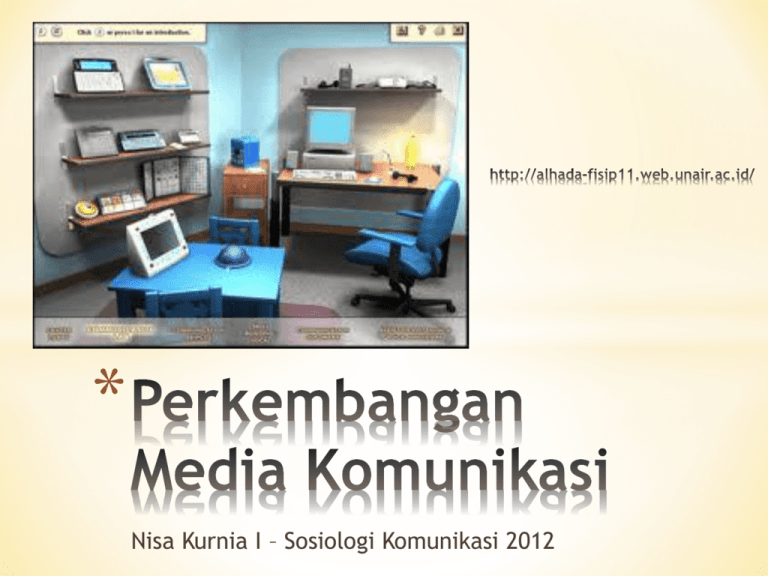
* Nisa Kurnia I – Sosiologi Komunikasi 2012 * Determinisme Teknologi * Komunikasi Lisan * Komunikasi Tulis * Teknologi dan Perkembangan Komunikasi * Periode Perkembangan Komputer * Internet * * Komunikasi dan Teknologi * Budaya Dinamika masyarakat Berubahnya cara berkomunikasi * Teknologi Perkembangan masyarakat Berubahnya cara berkomunikasi * Teknologi menjadi variabel determinan * * Retorika seni berpidato pada masa Yunani dan Romawi. * Retorika dan opini publik * Radio pentingnya komunikasi lisan * Inovasi tidak selalu subtitutif * Periode Perkembangan Komunikasi * Abad pertengahan (akhir abad ke-19) * Masa Reformasi * Pertengahan Abad 20 * * Sejarah Perkembangan Surat Kabar * 1st time in USA; 1660 in Boston * 2 types of newspaper: Political and General Issues * Bigger form because of TAX * General Newspaper * 1750s 85 cent for shipping information * Illiterate society * * Party’s Newspaper * 1830s in North America sponsored by political party * The reader Literate people who interested in politics and Elite * Golden Era of Newspaper * Late 1830s until 1930s * The improvement of printing technology * The rise of ‘another’ medium * The yellow paper * * Contemporary Daily Newspaper * Declining audience medium competition * Materialism logic * Late 1990s online newspaper * Magazine * Advertisement side * Long-life span and circulation * * 3 stages of technology approval: * Innovation * Diffusion * Suppression * Intertwined with supervening social necessity and another social factors * Telegraph and Telephone * Phone Commercialization AT&T Case (1899-1983) * Digital Phone; IP Telephony; NGN Broadband phone * * Television * Technological development * Indonesia contemporary * The raise of local TV * Concentration toward TV owner * Cultivation effect of television * TV as 2nd GOD * Political economic aspects of TV * The importance of TV literate * * Mechanical Calculator * 1st Generation * WWII War technology * 1945 EDVAC; the embryo of CPU * 2nd Generation * 1948 transistor size * 1960s Software industry * 3rd Generation * 1958 IC * Building OS (Operating System) * * 4th Generation * 1970s mini-computer * 1981 IBM’s PC * LAN networking * 5th Generation * AI computer * The inovation Notebook, smartphones, tablet PC * * ARPANET Military networking * The positive and negative * Era 2.0 * Connectivity, interactivity and information super highway * Technology as the extension of man * Socmed phenomenon * 3 perspectives of ICT: * Dystopian Extra careful; Husserl, Heidegger, Thoreau, Arendt and Barber * Neo-futuristic Total acceptance; Naisbitt, toffler, Rubben, Groper and Negroponte. * Techno-realist Critical usage * * Millennial Generation * Y Generation – Born in 1980-2001 * I’m special * Rather identified as part of a group * Optimistic * Depends on technology * Importance of family and friends * Thriving for success * Personal life then professional life * Global perspectives * Cyberspace * Virtual society * Socmed and state * http://alhada-fisip11.web.unair.ac.id/
